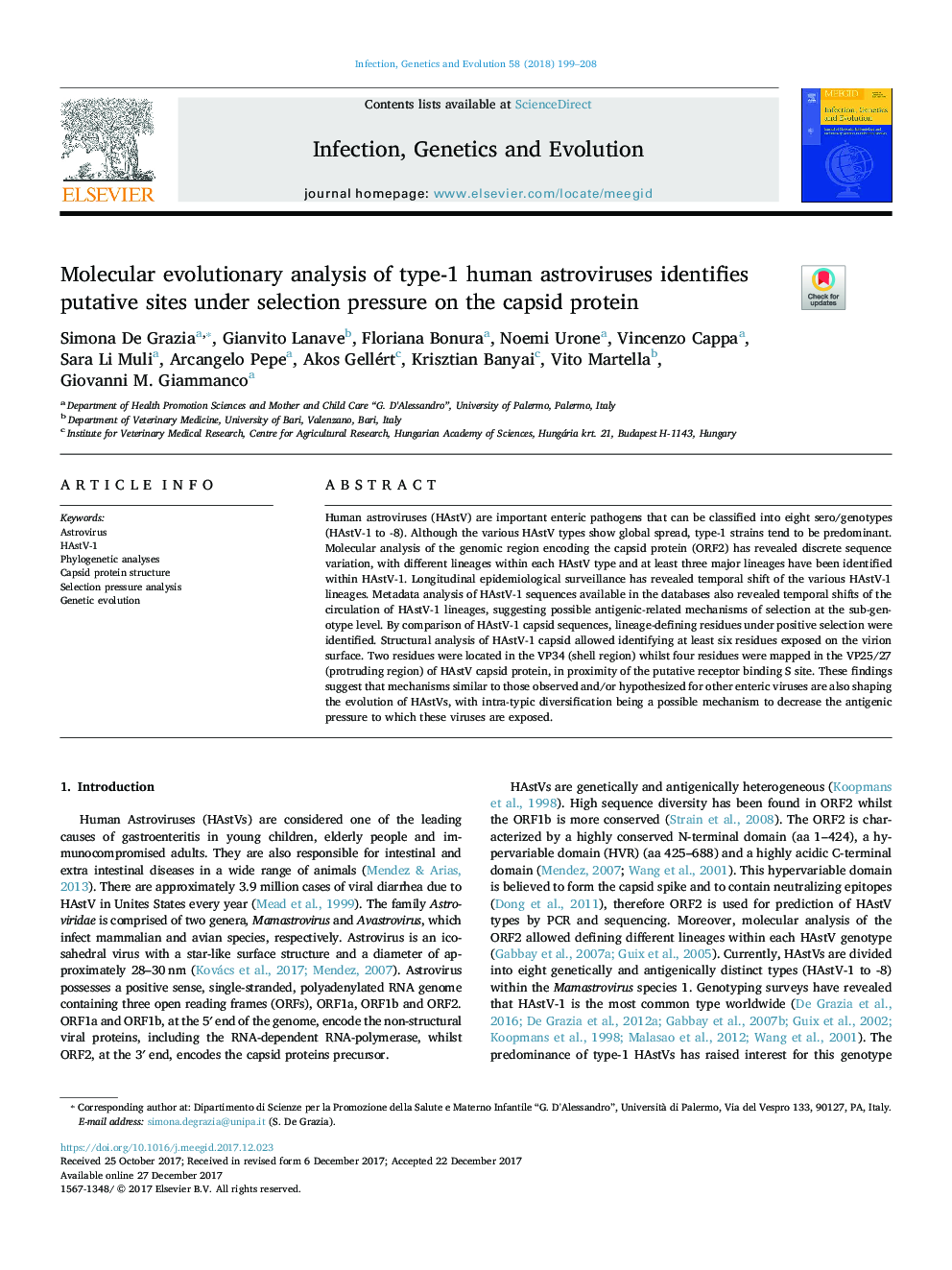| کد مقاله | کد نشریه | سال انتشار | مقاله انگلیسی | نسخه تمام متن |
|---|---|---|---|---|
| 8646983 | 1570145 | 2018 | 10 صفحه PDF | دانلود رایگان |
عنوان انگلیسی مقاله ISI
Molecular evolutionary analysis of type-1 human astroviruses identifies putative sites under selection pressure on the capsid protein
ترجمه فارسی عنوان
تجزیه و تحلیل تکاملی مولکولی از استرو ویروس های نوع 1 انسان تعیین سایت های مورد نظر تحت فشار انتخاب بر روی پروتئین کپسید
دانلود مقاله + سفارش ترجمه
دانلود مقاله ISI انگلیسی
رایگان برای ایرانیان
کلمات کلیدی
موضوعات مرتبط
علوم زیستی و بیوفناوری
علوم کشاورزی و بیولوژیک
بوم شناسی، تکامل، رفتار و سامانه شناسی
چکیده انگلیسی
Human astroviruses (HAstV) are important enteric pathogens that can be classified into eight sero/genotypes (HAstV-1 to -8). Although the various HAstV types show global spread, type-1 strains tend to be predominant. Molecular analysis of the genomic region encoding the capsid protein (ORF2) has revealed discrete sequence variation, with different lineages within each HAstV type and at least three major lineages have been identified within HAstV-1. Longitudinal epidemiological surveillance has revealed temporal shift of the various HAstV-1 lineages. Metadata analysis of HAstV-1 sequences available in the databases also revealed temporal shifts of the circulation of HAstV-1 lineages, suggesting possible antigenic-related mechanisms of selection at the sub-genotype level. By comparison of HAstV-1 capsid sequences, lineage-defining residues under positive selection were identified. Structural analysis of HAstV-1 capsid allowed identifying at least six residues exposed on the virion surface. Two residues were located in the VP34 (shell region) whilst four residues were mapped in the VP25/27 (protruding region) of HAstV capsid protein, in proximity of the putative receptor binding S site. These findings suggest that mechanisms similar to those observed and/or hypothesized for other enteric viruses are also shaping the evolution of HAstVs, with intra-typic diversification being a possible mechanism to decrease the antigenic pressure to which these viruses are exposed.
ناشر
Database: Elsevier - ScienceDirect (ساینس دایرکت)
Journal: Infection, Genetics and Evolution - Volume 58, March 2018, Pages 199-208
Journal: Infection, Genetics and Evolution - Volume 58, March 2018, Pages 199-208
نویسندگان
Simona De Grazia, Gianvito Lanave, Floriana Bonura, Noemi Urone, Vincenzo Cappa, Sara Li Muli, Arcangelo Pepe, Akos Gellért, Krisztian Banyai, Vito Martella, Giovanni M. Giammanco,
